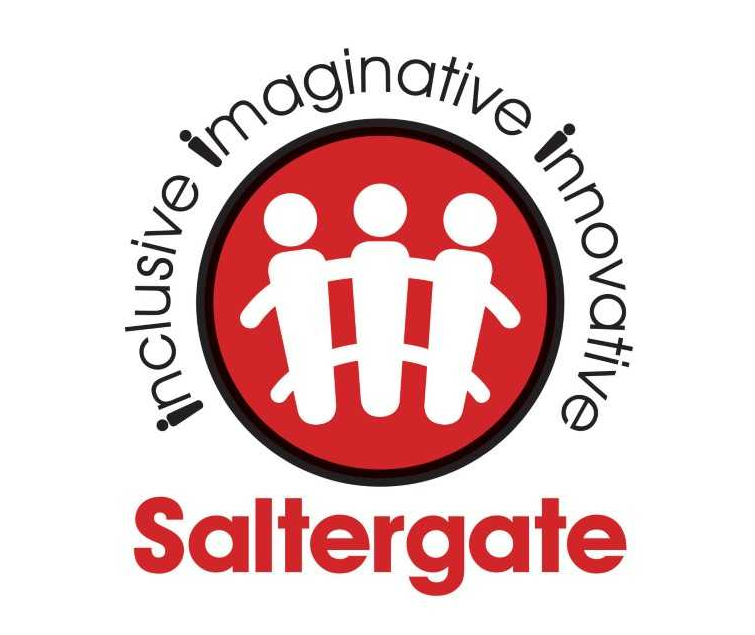Science
Subject Overview
At Saltergate schools, we follow the Early Years Statutory Framework for EYFS and the National Curriculum for Key Stage One and Two when planning our science curriculum. Staff refer to the progression of knowledge document when planning and teachers in KS1 and KS2 are further supported by planning documents created by NYCC.
Science lessons are enquiry based, practical, engaging, pupil led, varied and fun. Wherever possible, links are made to other curricular areas such as Maths and computing. Teachers actively promote speaking and listening during science lessons and a strong emphasis is placed on the acquisition and use of technical scientific language and vocabulary.
In the summer term, all children at Saltergate participate in a week long STEAM week. Previous themes include: Journeys, Wonder of the World and Growth.
EYFS
Understanding the world involves guiding children to make sense of their physical world and their community. The frequency and range of children’s personal experiences increases their knowledge and sense of the world around them.
EYFS framework
At Saltergate, the curriculum follows the interests of the children and topics are chosen to provide them with the relevant knowledge and skills which can be built upon as they progress through school. Such topics that relate to Science and Understanding the World include celebrating the environment, marvelling at nature and recognising seasonal change. As with all areas of the EYFS curriculum, these topics will be delivered through a wide variety of first hand, practical learning opportunities to enable children to develop to their full potential.
By the end of EYFS, children at the expected level of development will:
- Explore the natural world around them, making observations and drawing pictures of animals and plants;
- Know some similarities and differences between the natural world around them and contrasting environments, drawing on their experiences and what has been read in class;
- Understand some important processes and changes in the natural world around them, including the seasons and changing states of matter.
KS1
Children are taught science on a weekly basis and cover a wide range of topics including seasonal change, living things, animals including humans and plants.
Teachers ensure that lessons are practical, fun and engaging and build on learning from EYFS. A strong emphasis is placed on language acquisition and the use of scientific vocabulary.
'The principal focus of science teaching in key stage 1 is to enable pupils to experience and observe phenomena, looking more closely at the natural and humanly constructed world around them. They should be encouraged to be curious and ask questions about what they notice. They should be helped to develop their understanding of scientific ideas by using different types of scientific enquiry to answer their own questions, including observing changes over a period of time, noticing patterns, grouping and classifying things, carrying out simple comparative tests, and finding things out using secondary sources of information. They should begin to use simple scientific language to talk about what they have found out and communicate their ideas to a range of audiences in a variety of ways. Most of the learning about science should be done through the use of first-hand practical experiences, but there should also be some use of appropriate secondary sources, such as books, photographs and videos.'
National Curriculum
KS2
Children are taught science on a weekly basis and cover a wide range of topics including: Evolution and Inheritance, Living Things, Forces, Light, Sound and Electricity. Teachers ensure that planning is progressive and builds on learning from the previous years.
Teachers ensure that lessons are practical, engaging and wherever possible child led. Children are encouraged to ask and answer questions, hypothesise, predict, test and evaluate their ideas. Teachers continue to place a strong emphasis on language and the use of scientific vocabulary.
The principal focus of science teaching in lower key stage 2 is to enable pupils to broaden their scientific view of the world around them. They should do this through exploring, talking about, testing and developing ideas about everyday phenomena and the relationships between living things and familiar environments, and by beginning to develop their ideas about functions, relationships and interactions...At upper key stage 2, they should encounter more abstract ideas and begin to recognise how these ideas help them to understand and predict how the world operates. They should also begin to recognise that scientific ideas change and develop over time. They should select the most appropriate ways to answer science questions using different types of scientific enquiry, including observing changes over different periods of time, noticing patterns, grouping and classifying things.
National Curriculum
